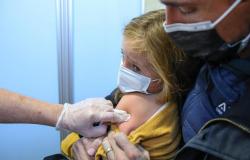HIBAPRESS-RABAT-FAO
The FAO Commission on Phytosanitary Measures (CMP) is an important body dedicated to controlling the risks posed by plant pests and diseases that threaten agriculture and livelihoods and damage our ecosystems. It met to consider new measures to stop their spread.
“The outbreak of pests and diseases can have far-reaching consequences and inflict irreversible damage on ecosystems, trade and the global food supply if nothing is done to prevent them,” Qu said. Dongyu, Director-General of the Food and Agriculture Organization of the United Nations (FAO), in his opening remarks to the 18th session of the Commission.
The CPM, the governing body of the International Plant Protection Convention (IPPC), meets annually to take stock of global plant health and review progress towards the objectives of the Convention. In 2023, the IPPC welcomed the Federal Republic of Somalia as the 185th contracting party to the multilateral treaty.
Changing climatic patterns and rising temperatures across the globe have modified the geographic distribution and intensity of the action of plant pests and diseases. This development makes the work of the CMP essential, which facilitates cooperation and the exchange of information in early detection, rapid intervention and coordinated control, underlined Mr. Qu.
Among the examples of destructive pathologies for plants, we can cite that caused by the fungus Fusarium tropical race 4 (TR4).
The widespread damage caused by this infectious agent to banana plantations was highlighted at the 4th World Conference of the World Banana Forum just organized by FAO. Yield losses caused by TR4, compounded by the effects of climate change, have affected more than 400 million farmers, producers and rural households dependent on this basic commodity.
The IPPC is working with FAO to help banana-producing countries combat TR4. The IPPC Secretariat coordinates global efforts to prevent the entry and spread of TR4. In addition to its work raising awareness of TR4 and conducting simulation exercises in different countries, the IPPC has produced a guide to prevent, prepare for and control outbreaks of TR4.
At COP28, FAO presented its “Global Roadmap to achieve Sustainable Development Goal 2 (SDG 2) without exceeding the global warming threshold of 1.5°C”. One of the areas of action defined by the Roadmap is the protection of crops through integrated pest control with the effect of reducing dependence on chemicals. The FAO Director-General highlighted the important contribution that the work of the CPM makes to FAO’s initiatives in managing the impact of climate change on plant health.
Among the themes on the agenda of the CPM meeting, we note the positioning of the IPPC in the “One Health” approach, which brings together international organizations working on plant, animal and human health.
Participating countries are also awaiting the adoption of amendments to phytosanitary standards, including criteria for determining the host status of a fruit for fruit flies, requirements for establishing pest-free zones and cold treatments applied to false codling moth.
The CMP is called upon to adopt the African Phytosanitary Program, designed to equip governments and national stakeholders with scientific evidence and cutting-edge technologies necessary for effective control of plant pests of interest to the regulator, the environment and the ‘economy.
The IPPC’s ePhyto solution has proven that trade health security can be supported by digital phytosanitary certification. As of December 2023, more than five million ePhyto certificates have been successfully exchanged by 88 countries using it, while the total number of countries registered in this program has increased to 128.
Regardless of the strong interest in food safety and animal health standards designed to ensure safe food, “we must not lose sight of the fact that it all starts with plant health standards,” says the Director General of the FAO, calling them “guardrails” against the impact of plant pests and diseases.






